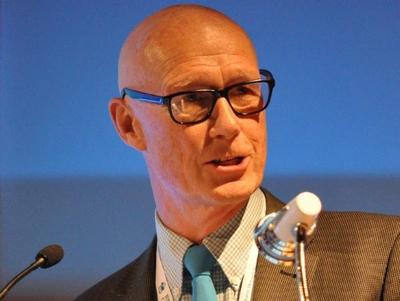Muriel Bell Lecture
Muriel Bell (4/1/1898-2/5/74) was an esteemed New Zealand nutritionist and medical researcher. At each Scientific Meeting of the Nutrition Society held in New Zealand, a free public lecture, is held in her name. Please feel free to attend this years lecture by Professor Boyd Swinburn
Date: Thursday 29th November 2018
Time: 5pm (for 1 hour)
Venue: Massey University, East Precint, Gate 1, Albany Highway, Auckland. The Atrium Building, AT2 Lecture theatre.

Professor Boyd Swinburn MBChB, MD, FRACP, FNZCPHM
Professor of Population Nutrition and Global Health, University of Auckland and Alfred Deakin Professor, Global Obesity Centre, Deakin University, Melbourne.
Topic: Power dynamics in 21st Century food systems
Boyd Swinburn is Professor of Population Nutrition and Global Health at the University of Auckland and Alfred Deakin Professor with the Global Obesity Centre, Deakin University, Melbourne. He is also Co-Chair of World Obesity Policy and Prevention section (formerly International Obesity Task Force).
He trained as an endocrinologist and has conducted research in metabolic, clinical and public health aspects of obesity. His major research interests are centred on community and policy actions to prevent childhood and adolescent obesity, and reduce, what he has coined, ‘obesogenic’ environments.
He is currently leading an initiative (www.informas.org) to monitor and benchmark food environments internationally. He has over 350 publications related to obesity, established WHO’s first Collaborating Centre on Obesity Prevention at Deakin University in 2003, led two Lancet Series on Obesity and co-chairs the Lancet Commission on Obesity.
He has been an advisor on many government committees, WHO Consultations, and large scientific studies internationally.
Muriel Bell Lecture 2019 - Power dynamics in 21st Century food systems
Professor Boyd Swinburn
Fundamental changes are needed in food systems to make them healthier more equitable, and sustainable as well as an ongoing source of prosperity. However, such changes will never occur without power struggles between competing interests.
What powers do nutrition science and nutrition scientists hold to inform and support the changes needed? In New Zealand, food is our biggest contributor to health loss (mainly through obesity and dietary risks for chronic diseases) and its related health inequities, our biggest source of greenhouse gases, and our biggest export earner.
We need to understand the answers to some fundamental questions: Why do we have the food systems we have, why do they have to fundamentally change from the current models, and why they are so resistant to change?
Power dynamics form a large part of the answers to these questions because the economic, ecological, health, and social drivers of food systems often clash. For nutrition science and nutrition scientists to be relevant and influential in the re-orientation of food systems to create better outcomes, we need to embrace these wider dimensions of food.
The New Nutrition Science movement started this idea some years ago, and expanding it to include methods from systems science, sociology, anthropology, and power dynamics will give nutrition science more relevance to the big challenges facing our food systems.
Individually and collectively, through organisations like the Nutrition Society, nutrition scientists and practitioners can add their voice to call for the fundamental changes needed to create food systems fit for the 21st Century.